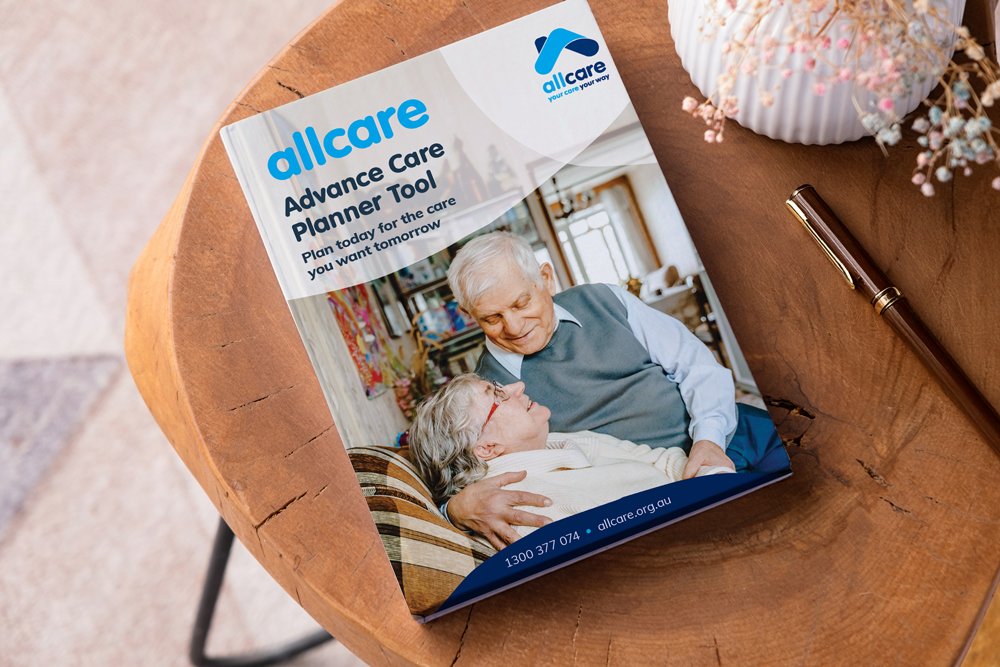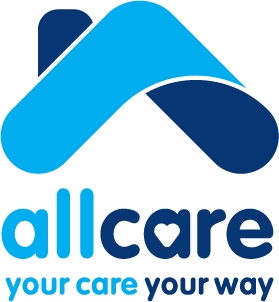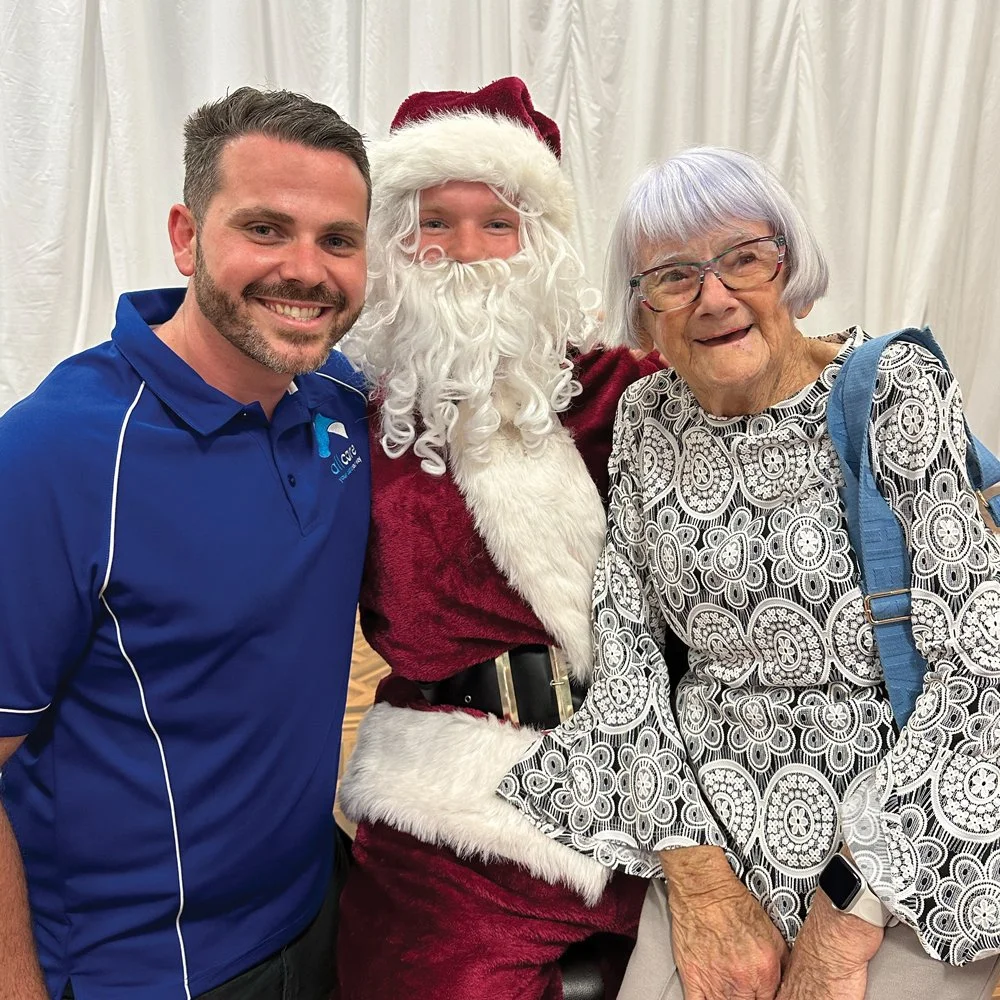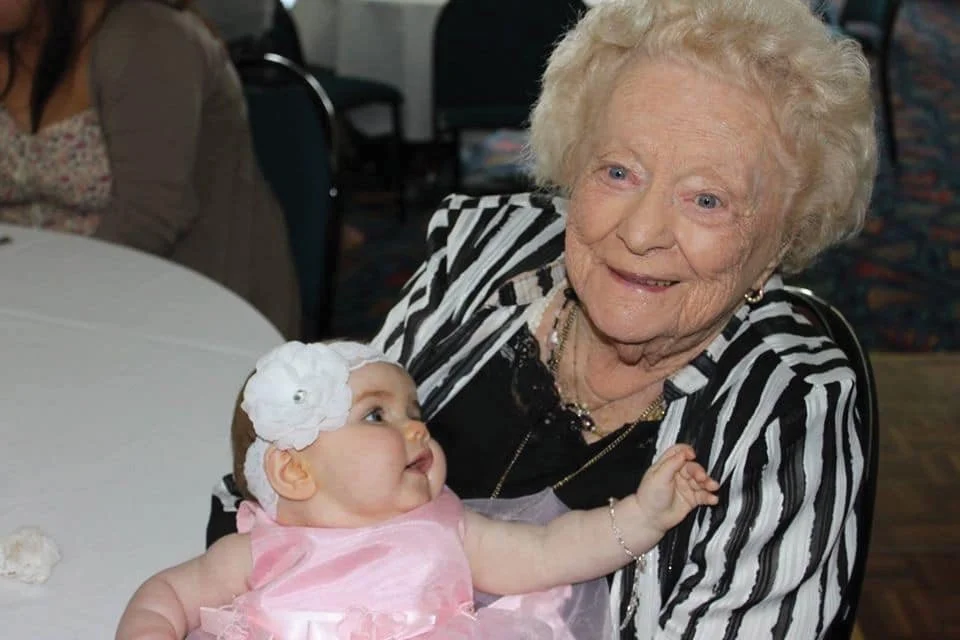
Advance Care Planning
Take control of your future health care.
Advance Care Planning helps you reflect on your personal values and preferences, and document them in what’s called an Advance Care Plan (ACP) so your wishes are known if you become too unwell to speak for yourself.
-
Advance Care Planning ensures your preferences are respected by your doctors and loved ones.
It gives peace of mind to family and carers, reducing stress and uncertainty during difficult times.
It helps you make informed choices now and for the future.
-
Advance Care Planning is important for:
Older people
People with a chronic health condition
People with early cognitive impairment
People with a life-limiting illness
Carers of anyone in these situations
-
The best time to consider Advance Care Planning is when you’re healthy,– before an emergency or urgent need arises.
It’s wise to talk with your doctor, family, and close friends early, so they can support your wishes if needed.
Speak with your aged care provider to start this documentation process.
-
Documenting your preferences in an ACP: Includes informal decisions, such as funeral arrangements.
Appointing an Enduring Guardian: Someone you trust to make health and lifestyle decisions for you if you can’t.
Writing an Advance Care Directive:
A record of the treatments and care you would want (or not want).
Advance Care Planning
What is Enduring Guardianship?
Enduring Guardianship allows you to appoint a person to make health and lifestyle decisions on your behalf if you lose the capacity to make your own decisions in the future.
-
Choose someone who is over the age of 18, understands your values and wishes and has the skills to make good decisions for you (often a family member or close friend).
Make sure your loved ones know who you have chosen, as this can help reduce stress and conflict at end of life.
Talk with your chosen Guardian about your wishes, especially if your circumstances change (for example,
if you are diagnosed with a serious illness).You can include specific directions in the appointment. Your Guardian must follow these and comply with your Advance Care Directive (if you have one).
You can appoint more than one Guardian – specify if they act jointly or separately.
It is recommended (but not essential) that a solicitor helps complete the form to ensure it is valid.
-
Only when you lose capacity to make personal or lifestyle decisions. The role ends if you regain capacity or at your death.
-
An Enduring Guardian can:
Decide where you live and what services you receive
Consent to medical, dental, and other healthcare
Consent to restrictive practices (if needed for safety)
Seek extra decision-making authority from the Guardianship Division of NCAT for complex matters, such as: Special treatments (e.g. those preventing children), termination of pregnancy and new or unreviewed treatments
An Enduring Guardian cannot:
Make decisions about your money
(that requires a Power of Attorney)Decide who you vote for
Consent to marriage on your behalf
Make decisions that are against the law
Make or change your Will or Advance Care Directive
-
It ensures your health care preferences are known and respected. It helps your family and doctors make decisions that align with your wishes, reducing stress and uncertainty during difficult times.
Health professionals and family members have no authority to override a valid Advance Care Directive.
-
There is no official place to register an Advance Care Directive in NSW. It’s important that carers and family members can access it quickly if needed. You can:
Upload it to My Health Record
Give a copy to your GP or treatment team
Include it with your will
Keep it in a safe but easy-to-find place at home
Share it with your Enduring Guardian, carers, and solicitor
-
Any document that meets the below criteria is valid and enforceable in NSW.
You must have decision-making capacity when creating it.
The directive should clearly state the treatments you would accept or refuse.
It must reflect your own preferences – no one else can make one for you.
It can be written or spoken to a solicitor or authorised person who can formally record it.
Signatures and witnesses are not required for validity but can help health professionals recognise that your directive is genuine.
If you no longer have capacity, you cannot create an Advance Care Directive – but you can still plan with the support of loved ones and health professionals.
-
Creating an Advance Care Directive is a formal legal process under the NSW Government.
It must be in the correct format and witnessed by a solicitor.
A copy of the required form is included in our Advance Care Planning booklet.
What is an Advance Care Directive?
An Advance Care Directive (ACD) is a document where you record your preferences for future health care. It documents the care you would want – or not want – if you become unwell and can’t communicate your wishes.

Advance Care Planner Tool
This booklet is designed to help you plan for your future care, so that your wishes are known and respected if you become seriously unwell or unable to speak for yourself. It will help you understand everything that goes into Advance Care Planning and how to get support every step of the way.
How to get started?
Our team can help you navigate the Advanced Care Planning process, complete the necessary forms, and deliver support that aligns with your needs and values.
Speak with an allcare Client Engagement Manager or book a free in-home consultation today.
Frequently Asked Questions
-
You can start by thinking about your values, what's important to you, and the type of care you'd want if you became seriously unwell. To make it easier, we've created an Advance Care Planner Tool that helps you record your preferences step by step. Fill it out and share with your loved ones or doctor.
Start your Advance Care Plan using our Planner Tool (page x)
-
An Advance Care Directive is a legally binding document outlining your specific medical treatment decisions. An Advance Care Plan is a broader summary of your values and care preferences, which may guide decisions but is not legally enforceable.
-
Yes. In NSW, you can legally appoint an Enduring Guardian to make medical and lifestyle decisions on your behalf if you lose capacity.
-
Yes. You can update or cancel your Advance Care Directive at any time while you still have capacity. Make sure you let your family, GP, and Enduring Guardian know if you make any changes.
-
Keep it somewhere safe and easy to access. Give copies to your GP, Enduring Guardian, and trusted family or friends. You may also want to keep a copy in your hospital file or My Health Record.
-
Yes. Your Advance Care Directive is the best place to record which treatments you would or wouldn’t want at the end of life. This might include resuscitation, tube feeding or ventilation.
-
No. Voluntary assisted dying requires you to have decision-making capacity throughout the process. You cannot request or access it through an Advance Care Directive.





